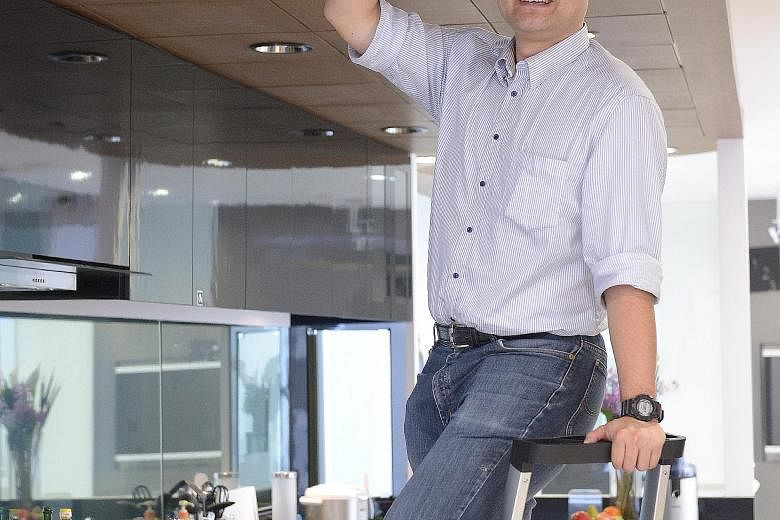When a child falls, he often suffers nothing more than a bruise or a graze on the knee.
But, for the old, that same fall could be debilitating.
International studies show that one in three people above the age of 65 will fall at least once each year.
An older person's bones are more brittle and his healing process is slower, so a single bad fall can leave him struggling to move for the rest of his life.
And for those living alone, it could be hours or even days before they get help after a fall.
This is where an invention by scientists from the Agency for Science, Technology and Research's (A*Star) Institute for Infocomm Research can help the situation.
Led by Dr Tan Yeow Kee, 38, they have developed a device, called SoundEye, that can detect screams and shouts. It also has ultrasound and infrared sensors which work together to detect when a person is on the ground.
Dr Tan was spurred into action in 2013 when he learnt about the plight of Madam Wong, an elderly woman who lived alone in her Tampines flat.
One day, she fell in the toilet and it was three days before someone found her.
She was forced to drink out of the toilet bowl to survive.
Dr Tan said: "She was in tears as she told me what happened and I knew I wanted to do something."
So he got down to work with funding from A*Star to find a solution in the form of SoundEye, which could hit the market this year. The price is still being worked out.
The device, about the size of a smoke detector, is attached to the ceiling of a room and plugged to a power source by cable.
When it detects a fall, it sends an alert to the caregiver's mobile device.
A four-month study completed in February last year on seven elderly people found that its accuracy was over 90 per cent.
Dr Tan hopes that the device can prevent a repeat of Madam Wong's experience.
He added: "I hope that it will also give caregivers peace of mind."
Samantha Boh

